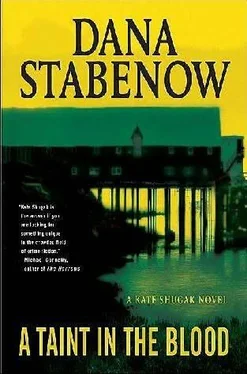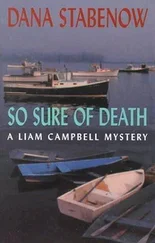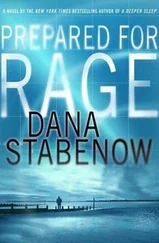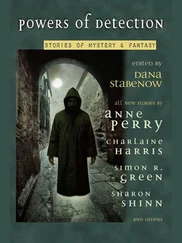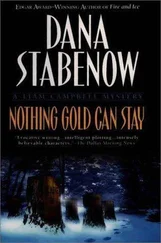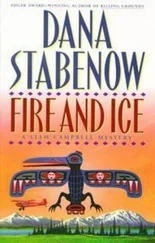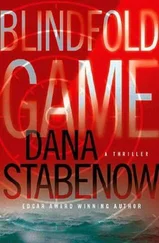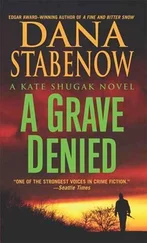“Where did you stay?” Kate said. “I never thought to ask.”
“Where did I stay where?” Charlotte asked.
“In the Park. When you came to see me.”
Charlotte’s brow cleared. “Oh, I didn’t stay. I drove on home.”
It was sixty miles of pitted gravel just to Ahtna, and another three hundred highway miles to Anchorage, and Charlotte had left Kate’s homestead at sunset. “Did you drive there that day from Anchorage?”
“Of course.”
Kate never understood why anyone would choose to drive instead of fly, and Charlotte had to have enough money to charter her own plane. The rich really were different.
She followed Charlotte into about the biggest living room she’d ever seen, filled with light from the bank of southwest-facing windows that filled one wall. The floors were wood, the walls invisible beneath a layer of paintings, not prints, all by local artists of the very first rank, and the furniture a rich teal leather that looked as comfortable as it did classy. There were a few sheepskin rugs tossed here and there, an entertainment center with a shelf full of CDs and DVDs, and a wall full of books. There went the third stereotype-that the rich don’t read. It annoyed Kate. She wanted Charlotte to be a part of the Great Washed, the ones with more money than brains, the ones who inherited and thus never had to scramble around for the rent, the ones who said “Let them eat cake” without ever having been short of bread. In Kate’s mind, Charlotte belonged to that group of people who put twenty-four-karat-gold faucets in their bathrooms, who embraced prenuptial agreements and liposuction as sacrosanct and who regarded taxes as something someone else paid.
However, she, Kate Shugak, had an unimpeachable work ethic, and she, Kate Shugak, would fulfill her contract, thereby separating an exemplar of the Great Washed from some of that lovely, filthy lucre by that most legitimate of means, work for hire, a concept of which the Great Washed had no working- pardon the expression-knowledge.
Suffused with a righteous sense of superiority, she sat down on the indicated chair and said without preamble, “Your mother fired me.”
Charlotte looked a little startled, but she rallied. “Would you like some coffee?”
“Thank you,” Kate said, inclining her head a regal inch or thereabouts, “no. I went to see your mother yesterday, and she was not enthusiastic about you reopening her case. Let me repeat: She fired me.”
“She can’t fire you,” Charlotte said, “she didn’t hire you.”
“Yeah, well, as I told you from the outset, this whole endeavor is a long shot at best. Victoria not talking to me is not shortening the odds.”
“I told you she wouldn’t,” a voice said.
Kate looked around and saw another woman standing at the bottom of a flight of stairs. She was pudgy in form and pugnacious in manner, with a short mop of tight gray curls and a jaw like a bulldog. She wore an elegant three-piece suit, charcoal with a faint pinstripe, the hem of the skirt hitting directly at midknee. The cream-colored blouse was tied beneath her chin in a soft bow. Her eyes were brown, and they narrowed as they stared at Kate.
“Kate Shugak, allow me to introduce to you to Emily Gessner.”
Emily strode forward, the very high heels of her very narrow Italian shoes making a strong staccato statement against the wood floor. Kate saw Charlotte wince.
“Kate,” Emily said, and went to stand in back of Charlotte, placing one hand on her shoulder.
“Emily,” Kate said.
“Emily’s my attorney,” Charlotte said.
Emily rolled her eyes. “And her partner,” she said.
“You’re an attorney, too?” Kate said to Charlotte.
Emily huffed out an impatient sigh. “That’s life partner.”
She didn’t add “you moron,” but Kate could tell the temptation was almost too great to resist. “Congratulations,” Kate said.
Emily, prepared for shock and disgust, blinked a little. Pressing her advantage, Kate said, “What did you tell Charlotte?”
Emily rallied. “I told her Victoria wouldn’t talk to you.”
“You know her?”
Emily shrugged. “We’ve never met, but Charlotte’s told me a lot.”
“What kind of law do you practice?” Kate said.
“Criminal.”
“Are you a litigator?”
Emily’s smile showed all her teeth. For a moment she looked like Mutt in a bad mood.
“And in your professional opinion, do I have a hope in hell of getting Victoria a get-out-of-jail-free card?”
Emily opened her mouth to reply, but Charlotte beat her to it. “It doesn’t matter what Emily thinks. It’s what I want that matters.”
Kate sighed. “Look, Charlotte-”
“You don’t have to talk to my mother,” Charlotte said. “What about the witnesses who testified at the trial?”
“Most of them testified for the prosecution,” Kate said.
“Then most of them were lying,” Charlotte said.
Kate thought over the list of witnesses she had compiled from the trial transcript. “You realize who some of these people are?”
“What,” Emily said, “you afraid of rocking the establishment boat?”
“No,” Kate said, “I’m making sure Charlotte isn’t.”
“I want my mother out of jail,” Charlotte said flatly. “There is no way she’d try to kill my brothers. She didn’t do it, and now she’s dying, and I won’t let her die in there.”
“I have to say that Victoria didn’t look all that ill to me,” Kate said.
With jerky movements, Charlotte rose and walked over to a desk to extract a file. She almost threw it at Kate.
Kate opened it up. It was a medical report confirming Victoria’s cancer.
“They’ll let me take her out for the operation, but she’s going to have to go through chemo and radiation and she’s going to require some long-term care, and even then those toadies down at the hospital don’t think she has much of a chance. I don’t care how much it costs or whose toes you step on, I want her out of that place as soon as possible. Are you out of money yet? I can get my checkbook.” She half-rose.
“I’ve barely cashed the first check, Charlotte.”
Charlotte settled back onto the couch, sitting at its extreme edge, her back rigidly straight. Emily suddenly looked less pugnacious and more worried. “Charlotte-” Emily said.
“I want her out,” Charlotte said without looking around at her partner.
Emily met Kate’s eyes. “All right, Charlotte, we’ll get her out. Won’t we, Kate?”
“Based on the trial transcript and the police report, I don’t think we’re going to be able to prove that she didn’t do it,” Kate said, “So, Charlotte, if your mom didn’t do it, who did?”
Charlotte slumped, her face dropping into her hands. “I don’t know,” she said, her voice muffled. “Don’t you think I’ve asked myself that question over and over again? Who sets out to murder two teenage boys? And why only the boys? Why not me, too?”
“Were you always supposed to go with your mother that day?”
“Yes, it was a fund-raiser for Mr. Stafford, and Mom always helped Uncle Erland when he put one of those on.”
“Too cheap to pay for catering,” Emily said to Kate.
Charlotte reddened but didn’t deny it. “It had been planned for a month.”
“And everyone knew you’d be there.”
“Yes. Mom paid me. It was part of my allowance to do stuff like that.” She paused. “And I liked doing it. It’s what I do now.”
Kate looked at Emily. “Cater,” Emily said. “At least now her uncle has to pay her for it.”
“Where is your surviving brother?”
“Oliver? He lives here in town.”
“Is he in the book?”
“He’s my partner,” Emily said.
Читать дальше
